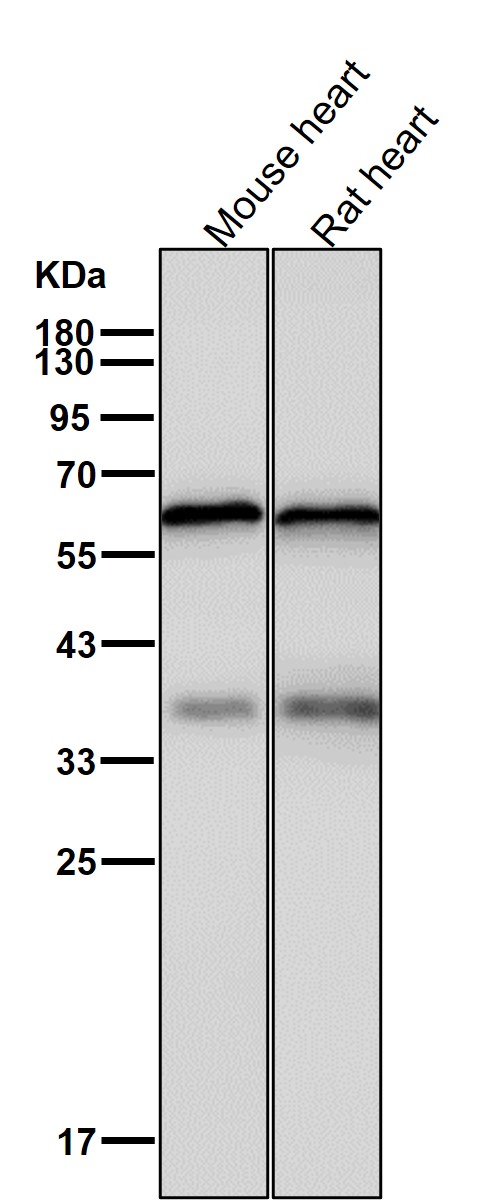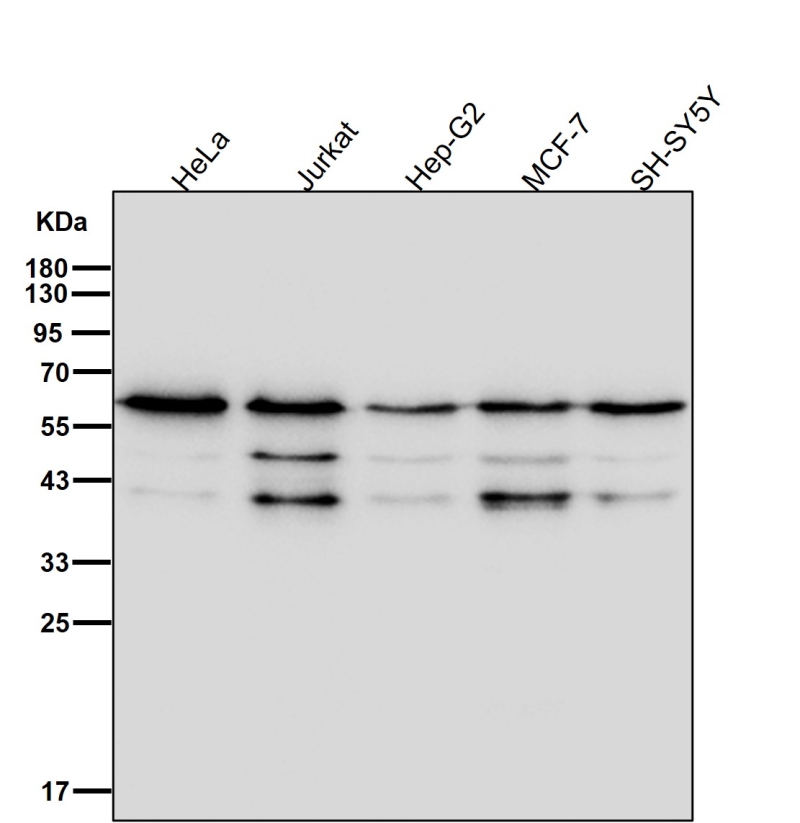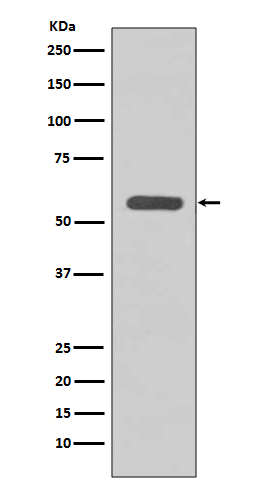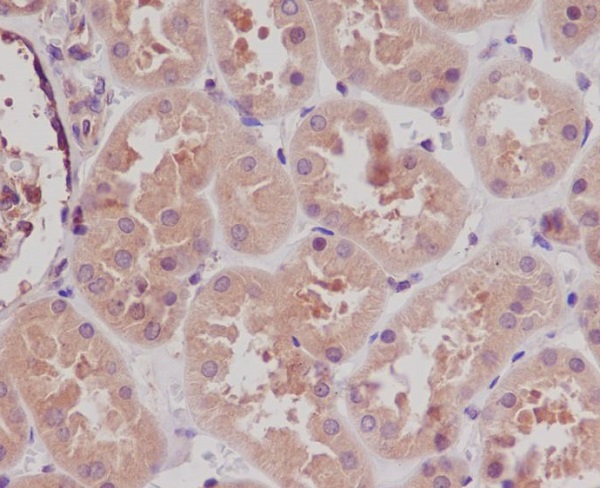



| WB | 1/1000-1/2000 | Human,Mouse,Rat |
| IF | 1/20-1/50 | Human,Mouse,Rat |
| IHC | IHC:1/100-1/200;IHF:1/50-1/200 | Human,Mouse,Rat |
| ICC | 1/50-1/200 | Human,Mouse,Rat |
| FCM | 1/20-1/100 | Human,Mouse,Rat |
| Elisa | 咨询技术 | Human,Mouse,Rat |
| Aliases | STK3; Mess1; MST-2; MST2; Serine/threonine kinase 3; KRS1; STE20-like kinase MST2;;STK3 |
| WB Predicted band size | 56 kDa |
| Host/Isotype | Rabbit IgG |
| Antibody Type | Primary antibody |
| Storage | Store at 4°C short term. Aliquot and store at -20°C long term. Avoid freeze/thaw cycles. |
| Species Reactivity | Human,Mouse,Rat |
| Immunogen | A synthesized peptide derived from human STK3 |
| Formulation | Purified antibody in PBS with 0.05% sodium azide,0.05% BSA and 50% glycerol. |
+ +
以下是关于STK3抗体的3篇参考文献示例(注:文献信息为模拟概括,仅供参考):
---
1. **文献名称**:*"STK3/MST2 promotes apoptosis by phosphorylating Yes-associated protein in hepatocellular carcinoma"*
**作者**:Li X, et al.
**摘要**:该研究通过Western blot和免疫共沉淀实验,利用STK3特异性抗体发现STK3通过磷酸化YAP蛋白激活凋亡通路,抑制肝癌细胞增殖。抗体用于验证STK3在肝癌组织中的表达下调及其临床意义。
---
2. **文献名称**:*"The Hippo kinase STK3 regulates glucose homeostasis by modulating insulin sensitivity"*
**作者**:Wang Y, et al.
**摘要**:研究使用STK3抗体进行小鼠肝脏组织的免疫组化分析,发现STK3通过Hippo信号通路调控胰岛素受体底物磷酸化,影响糖代谢异常。抗体特异性通过siRNA敲降实验验证。
---
3. **文献名称**:*"STK3 deficiency promotes colorectal cancer metastasis via ERK pathway activation"*
**作者**:Zhang R, et al.
**摘要**:通过免疫荧光和流式细胞术结合STK3抗体,揭示STK3缺失导致ERK信号异常激活,促进结直肠癌转移。研究强调该抗体在区分STK3亚细胞定位中的关键作用。
---
**提示**:实际文献需通过PubMed、Google Scholar等平台以“STK3 antibody”、“MST2 detection”等关键词检索,并关注抗体货号(如CST #abc123)以溯源实验方法。
The STK3 antibody targets serine/threonine kinase 3 (STK3), also known as MST2. a core component of the evolutionarily conserved Hippo signaling pathway. This pathway regulates organ size, cell proliferation, apoptosis, and tissue homeostasis, with dysregulation linked to cancer and developmental disorders. STK3. along with its homolog STK4 (MST1), functions as a tumor suppressor by phosphorylating downstream kinases LATS1/2. which inhibit oncogenic transcriptional co-activators YAP/TAZ. Structurally, STK3 contains an N-terminal kinase domain and a C-terminal SARAH domain, enabling homodimerization or heterodimerization with adaptor proteins like SAV1 to form signaling complexes.
Antibodies against STK3 are critical tools for studying Hippo pathway dynamics. They are widely used in Western blotting, immunofluorescence, and immunoprecipitation to assess STK3 expression, localization, phosphorylation status, and interactions in cellular or tissue samples. Validated antibodies often demonstrate specificity through knockout/knockdown controls, ensuring accurate detection of the ~56 kDa protein. Research applications include investigating STK3's role in apoptosis, cell cycle regulation, and its crosstalk with pathways like Wnt or TGF-β. Additionally, STK3 antibodies aid in exploring therapeutic strategies targeting Hippo signaling in cancers, fibrosis, and regenerative medicine. Commercial variants may differ in clonality (monoclonal/polyclonal), epitope recognition, or species reactivity, requiring careful selection based on experimental needs.
×